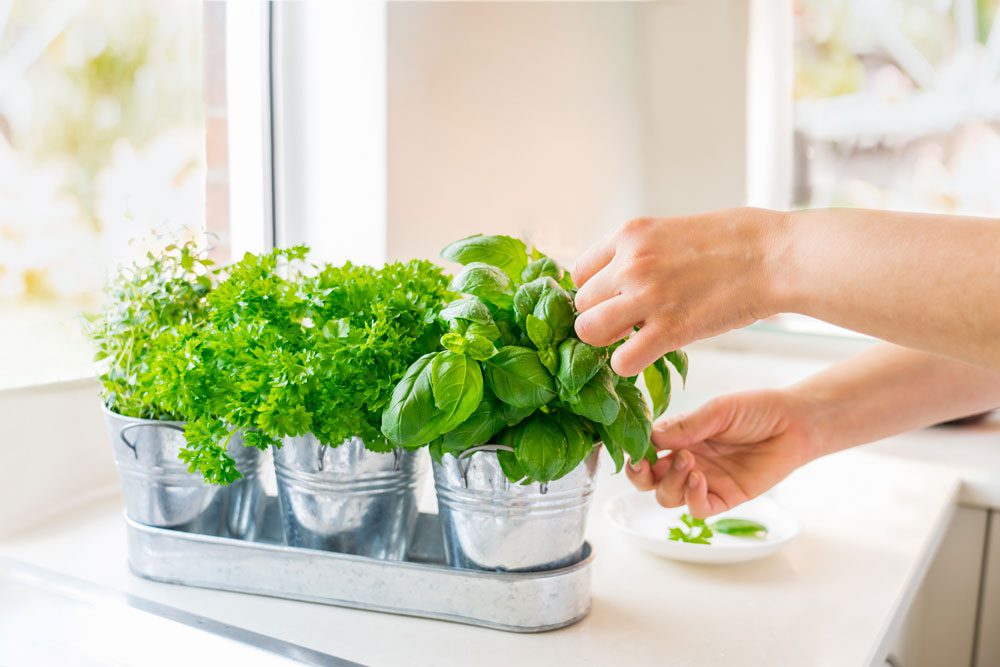Of late, we have been writing quite a bit about healthy eating in recovery—a key strategy for maintaining your physical health, your mental health, and your hard-won freedom from drugs or alcohol. In keeping with that theme, we want to explore a couple of ways that you can be even more directly involved in what you eat.
Consider this your invitation into the garden and into the kitchen—two places where you can make great choices that support your recovery.
Gardening is Great in Recovery
One of the great things about gardening is that you have the opportunity to grow healthy food right at home. Whatever you decide to plant—beans, tomatoes, carrots, radishes, and more—is going to be nutritious and delicious in the way only homegrown food can be.
But growing your own food is not the only benefit of getting out into the garden. Other positive outcomes of gardening include:
- Getting some exercise. You might not think of gardening as a particularly strenuous activity, but it turns out that the activity can be an excellent way to exercise. When you are gardening, all of your major muscle groups are engaged, your mobility is improved, and you build endurance. You also burn plenty of calories while engaged in the various activities related to gardening.
- Getting some sunlight. Vitamin D supports your mental health, which in turn supports your recovery. The best source of vitamin D? Sunlight. So the time you spend outdoors in the garden is beneficial—as long as you take precautions so that you do not end up with a sunburn.
- Exercising your creativity. When you create a garden, your creativity comes into play. You get to make choices about what to grow, where to plant, and how to position your crops in relation to each other. Of course, you can also grow flowers in your garden, and that adds opportunities to think about color and arrangement (as well as how best to serve your local ecosystem of bees and more). Getting creative is a great way to support your recovery—and can even be part of the therapeutic process.
That might all sound great, but you may not have the space at home to start a garden. If that is the case, we encourage you to explore community garden options nearby. A community garden is just what it sounds like—a place where various members of the community share a large plot and grow a variety of things. A community garden can add another benefit for your recovery: the opportunity to spend positive, productive time with others who share your interest in growing food and more.
Get Cooking in Recovery
For many people, cooking is more of a chore than something to enjoy. If you feel that way, we encourage you to shift your thinking a bit. Cooking your own meals tends to make those meals healthier, which is good for your mental and physical health—and your recovery.
That is not the only advantage of getting engaged in food preparation. Here are some others:
- Exercising your creativity. Just like gardening, cooking can be an excellent way to get creative. That creativity might take the form of exploring cookbooks for new and unusual recipes to try. It might take the form of experimenting with your own recipes or tweaks to existing recipes. Or it might involve exploring different and beautiful ways to plate food so that it makes a visual impact when served.
- Strengthening your social ties. Few things are more fundamental than gathering together over a meal. When you take up cooking, you have the opportunity to bring your family and friends together for conversation, laughter, and, of course, yummy food. And you can also invite others into the kitchen with you to enjoy cooking (and to share the cleanup duties), which is another way to strengthen bonds.
- Enjoying an engaging hobby. Having a hobby is a good way to support your recovery, and cooking itself can serve as a hobby. But it can also serve as a jumping-off point for other activities. You might, for example, start collecting cookbooks of one kind or another. You might find food blogs or books or shows to read or watch in your free time to get new ideas. You might even take classes to improve your skills and to garner new ideas.
You do not have to try to become a gourmet chef to get benefits from cooking your own meals. But you can have plenty of fun trying new things and sharing the results with loved ones—all while supporting your recovery.
We Are Always Here to Help
Drugs and alcohol can upend just about everything about your life. They damage your health, your finances, your relationships, and more. The sooner you can eliminate those substances from your life, the better.
At Bel Aire Recovery Center—located near Wichita, Kansas—we can help you get your recovery started and give you the strategies and support you need to keep it going. From medically supervised detox to our robust rehabilitation program to our commitment to providing ongoing care, we are always working to help you reclaim your life from drugs or alcohol.




